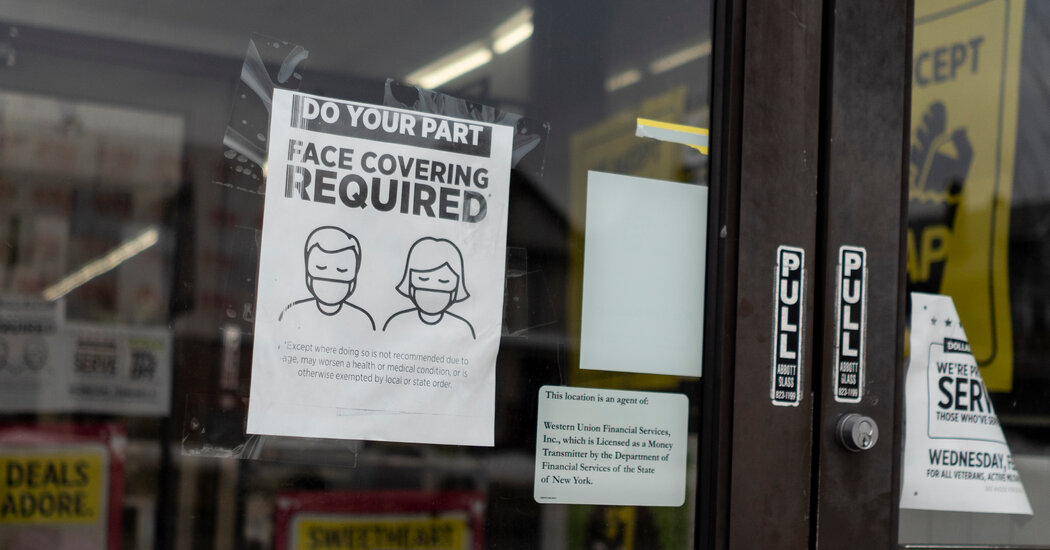While Ukraine is under attack by Russia, Ukraine’s civilian population is also under siege from the coronavirus, a situation only likely to worsen.
The fighting in Ukraine’s east is forcing a mass migration to the west that is crowding mass transit centers and trains and jamming roads. Video images of the large numbers of Ukrainians on the move show understandably few signs of face coverings, even as the country is just getting past a record high point in its infection rate.
The coronavirus outlook for those fleeing the fighting is grim, according to Dr. Eric S. Toner, a senior scholar at the Center for Health Security at the Bloomberg School of Public Health at Johns Hopkins University.
“They’re quite vulnerable, and as people huddle together, either sheltering or evacuating in crowded buses, trains and cars, maybe in hotels and refugee camps, it’s going to cause a reversal of the progress,” he said in an interview on Thursday. “They can’t maintain distance and don’t have access to masks.”
Many people are heading to smaller towns and villages, or crossing the border into Poland, Hungary, Slovakia, and Romania, and the flow of refugees will likely affect those countries’ pandemic situations, too.
Senior Biden administration officials say that between one million and five million people in Ukraine could seek safety in some other part of that country or in neighboring countries. On Thursday, the United Nations High Commission for Refugees said that the refugee agency was already increasing its operations in Ukraine and neighboring countries.
Dr. Toner said that he expected Ukraine’s neighbors to see a rise in their Covid case numbers and additional stress on their health care systems from refugees, but those problems will be worse inside Ukraine.
“They’re going to be caring for Covid patients, along with war victims,” he said. “They’re going to be understaffed because of the war, and it’s going to harm their chances of keeping patients in isolation or have social distancing. It’s going to be a mess.”
Ukraine is reporting an average of about 26,000 new cases a day, or 63 new cases per 100,000 people, according to the Our World in Data project at the University of Oxford. Only about one-third of Ukraine’s 44 million people are fully inoculated against the coronavirus, though Ukrainian officials said this month that the army had a 99 percent vaccination rate.
Russia, despite being one of the first countries to develop and approve a coronavirus vaccine, has fully vaccinated only half of its population, according to the Our World in Data project. It is also dealing with an Omicron surge, recording an average of 160,000 new cases over the last seven days, or 111 cases per 100,000 people.
Ukraine does not recognize Russia’s Sputnik V vaccine, while Russia does not recognize the Western-manufactured vaccines administered in Ukraine.
The Russian invasion is also likely to hurt Ukraine’s ability to track the virus, Dr. Toner said. If the county’s data becomes unreliable, that would be a particularly important loss for epidemiologists because the country is in the heart of Eastern Europe.
“I would suspect that we’re going to stop getting a lot of data from Ukraine,” Dr. Toner said. “The hospitals and local health departments are not going to have that as a priority. ”


























